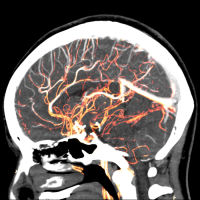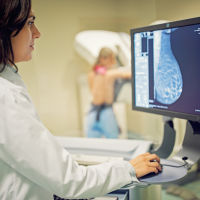A recent study tested the ability of an artificial intelligence (AI) system to triage adult chest radiographs in real-time. Based on deep convolutional neural networks (CNN), the system was able to prioritise radiographs based on the urgency for follow-up treatment, with the aim of improving radiologists’ workflow.
470,388 anonymous adult chest radiographs, from 2007 to 2017, were used in the study. A natural language processing (NLP) system was then used to categorise the free-text radiology reports based on normality, abnormality and ultimately urgency.
The AI system was able to extract information from the radiology reports with high accuracy, demonstrating over 90% sensitivity and over 96% specificity. When it came to defining the radiographs as normal or abnormal, the AI system reported a 95% specificity.
Results from the study also reported a reduction in the average reporting delay of the abnormal chest radiographs. Radiographs defined as critical by the AI system had reduced the average reporting delay from 11.2 days to 2.7 days. Similar results were also seen for radiographs labelled ‘urgent’ with delay times reducing from 7.6 days to 4.1 days. The prioritisation of the radiographs in real-time significantly improved the reporting turnaround times, however, these new delay times would still cause problems in most modern clinics. These results show that turnaround time is also highly dependent on the organisation and its clinical pathways, which should be considered in future research.
When the system was tasked with gauging priority of radiographs, the reported performance was less accurate, with over 65% sensitivity for critical cases and over 76% specificity for urgent cases. For example, out of the 545 ‘normal’ radiographs, as reported by the AI system, 1% were found to be critical and 17% were found to be urgent. Although, after reviewing again these cases, it was found that four out of the five critical cases (1%) were actually normal and 36 out of the 95 urgent cases (17%) were also normal. Whilst these are still promising results, more research needs to be conducted to improve the misclassification rate.
Overall, the study showed that it is feasible to use AI to triage adult chest radiographs as the AI system was able to successfully decipher and prioritise free-text radiology reports. This means that abnormal radiographs could be identified quickly and queued for real-time reporting, in order of urgency. The use of this technology holds positive connotations for the future of clinical radiology practice.
Source: RSNA
Image Credit: iStock
References:
Annarumma, M. et al. (2019) Automated Triaging of Adult Chest Radiographs with Deep Artificial Neural Networks. Radiology 291(1) 196-202 https://doi.org/10.1148/radiol.2018180921
Latest Articles
Radiology, triage, Artificial Intelligence, AI, deep learning, radiology report, CNN, radiographs, chest radiograph, AI system, deep convolutional neural networks, adult chest radiographs, natural language processing (NLP) system, natural language processing system, NLP system, free-text radiology report
A recent study tested the ability of an artificial intelligence (AI) system to triage adult chest radiographs in real-time.



























